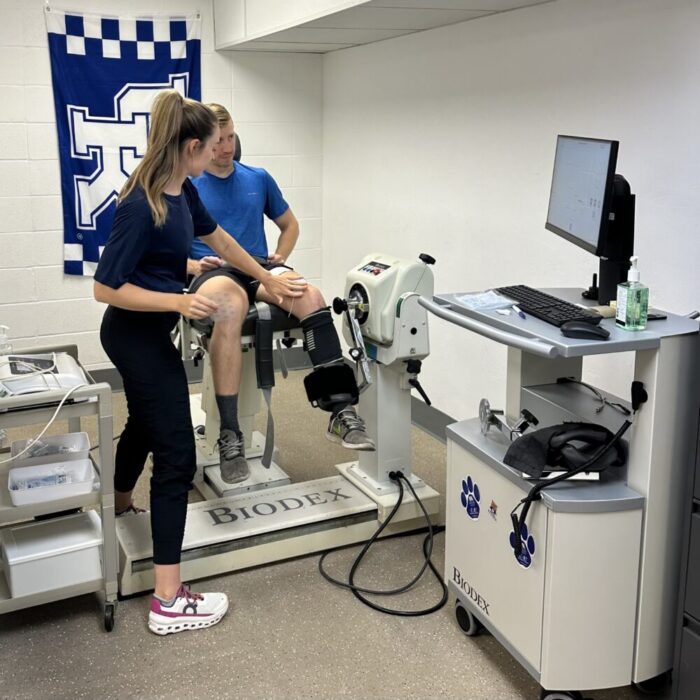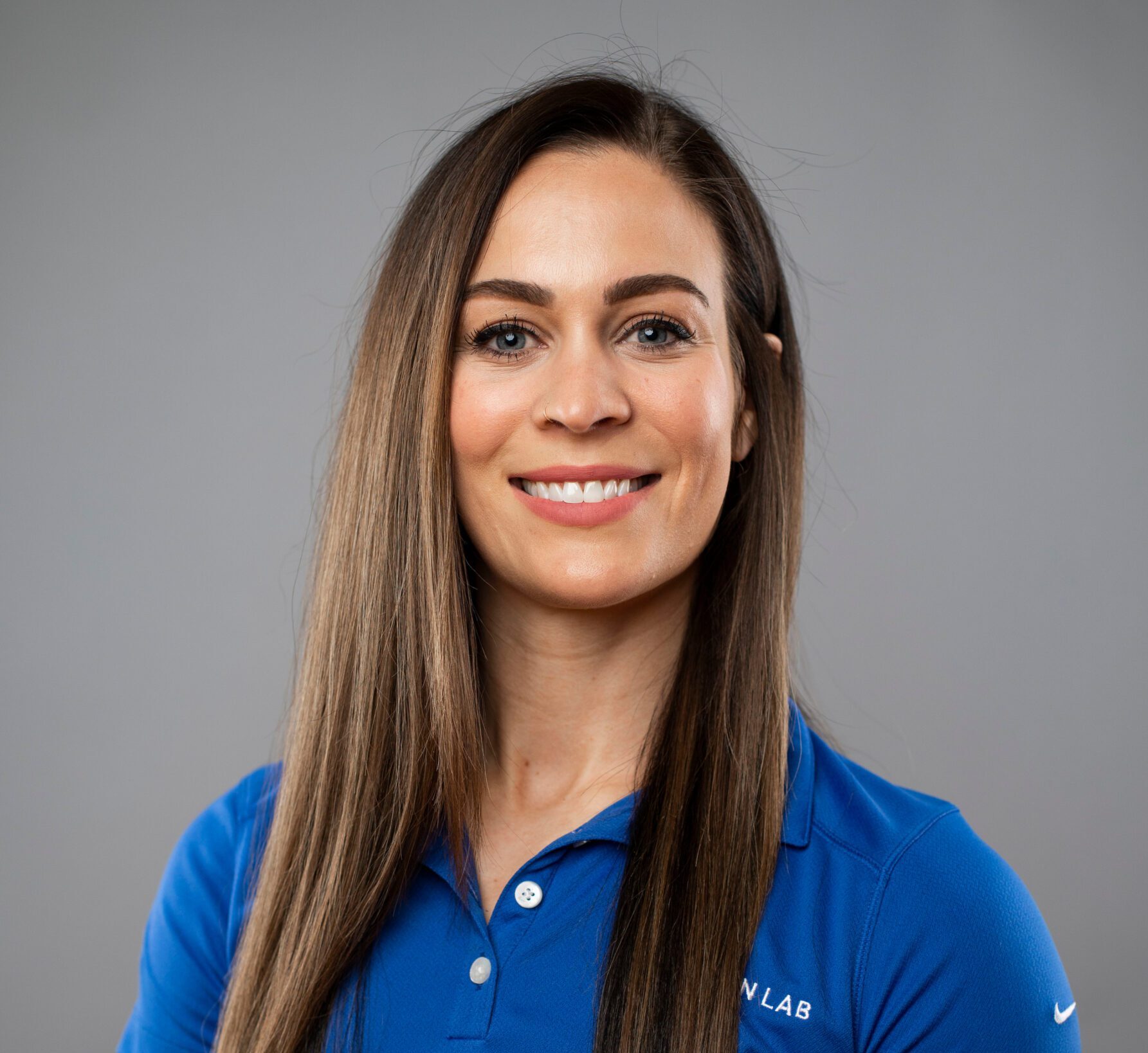Foundation Researcher Spotlight: Megan Graham on Enhancing ACL Rehabilitation
Megan Graham PT, DPT, SCS, FAAOMPT, CSCS is a current PhD student in Exercise Science with a concentration in Biomechanics. She is the recipient of the 2023 PODS I scholarship.
Can you tell me a little bit about yourself and your personal background?
I was born and raised in Kentucky. I spent my academic years at Appalachian State University in Boone, North Carolina. My involvement in competitive volleyball during that time sparked my interest in physical therapy. I pursued my physical therapy education at the University of Kentucky. Now, I am furthering my education with a Ph.D. at the same institution. During my free time, I do olympic weightlifting, where I find enjoyment in both coaching and competing. Additionally, I cohost a physical therapy podcast called PT Inquest, which is a fun way to share current research and stay involved with the profession. Aside from those activities, I like to attend UK sporting events and spend time with my two dogs.
What made you want to become a PT?
Most people share a common narrative about their path into physical therapy. They experience an ACL tear, go through rehabilitation, and discover their passion for becoming a PT. However, for me, the ACL injury wasn’t the sole driving force towards this profession. Instead, it was my interest in strength and conditioning that grew during my rehabilitation, aiming to get back into shape post-injury, which led me to PT. I knew I wanted a career in healthcare and recognized that physical therapy provided the ideal opportunity to assist people in their recovery journey through the utilization of strength and conditioning. That realization significantly influenced my decision to pursue physical therapy.
Can you tell us a little bit about your professional journey?
I attended the Physical Therapy program at the University of Kentucky from 2012 to 2015. Following my graduation, I pursued a sports residency at Houston Methodist Sugar Land Hospital in Sugar Land, Texas. After completing the year-long residency, I joined the sports physical therapy team at Texas Children’s Hospital, where I worked for approximately 5 years. During my time there, I served as a faculty member and mentor for their sports residency program, primarily catering to the needs of middle and high school athletes.
This experience inspired me to pursue a Ph.D., as I discovered a passion for education and mentoring within the field of physical therapy. I realized it could be a long-term career path that would allow me to transition away from the potential burnout of clinical practice. In 2021, I returned to the University of Kentucky, my alma mater, to embark on a Ph.D. in Exercise Science. The program is heavily focused on practical treatment for individuals undergoing ACL rehabilitation, which aligns well with my research focus on optimizing outcomes after ACL reconstruction.

What research have you been working on? And what role did the Foundation play in your research journey?
My primary research focus revolves around optimizing the rehabilitation process for middle to late stages of ACL recovery. I aim to integrate strength and conditioning principles into the current ACL rehabilitation paradigm in order to improve performance outcomes and mitigate reinjury rates. My recent work involves establishing specific clinical benchmarks for quadriceps strength that clinicians can use to guide rehabilitation progressions for activities like running and jumping. Additionally, a significant part of my research has been on exploring quadriceps rate of torque development, focusing on its clinical implications for knee joint biomechanics and athletic performance. The support and encouragement from the Foundation, especially through the PODs I scholarship, has significantly boosted my confidence during the early challenges of my PhD training. It has been instrumental as I prepare to propose becoming a PhD candidate. This support will play a crucial role in my upcoming grant applications, aiding in securing additional funding and advancing research aimed at enhancing ACL rehabilitation.
What is the value of physical therapy research to you?
First and foremost, the primary beneficiaries of physical therapy research are unquestionably the patients. The research enhances patient care by understanding and optimizing the processes involved in their recovery, aiding in the prevention of re-injury, and facilitating a safe return to their desired level of performance or activity. This focus on optimization is critical. Also, physical therapy research holds significant value for both the profession and the healthcare system. If we further emphasize the value of physical therapy services, it will be instrumental in securing insurance reimbursement and ensuring the longevity of the profession. Additionally, it acts as a catalyst for fostering innovation and sparking discussions among practicing physical therapists engaged in research, facilitating the development of new ideas and concepts.
Any final thoughts?
I genuinely value the support provided by the Foundation and anyone advocating for clinicians to transition into research roles. I believe it’s crucial to have individuals with a clinical background, like physical therapists, venture into the research domain. Firsthand clinical knowledge enhances the research’s value. There are a limited number of individuals pursuing their PhD due to financial reasons, and I am hoping that additional funding opportunities can help encourage people to go back and pursue a career in research.

STAY CONNECTED
Use this form to sign up for the Foundation for Physical Therapy Research monthly newsletter.